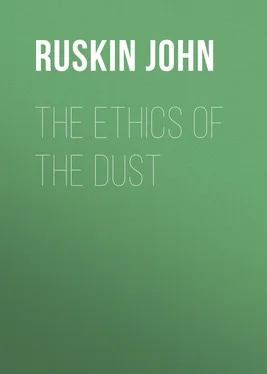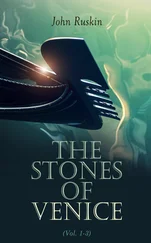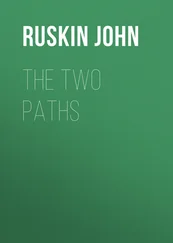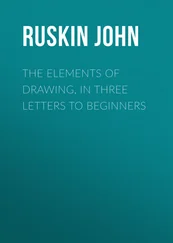John Ruskin - The Ethics of the Dust
Здесь есть возможность читать онлайн «John Ruskin - The Ethics of the Dust» — ознакомительный отрывок электронной книги совершенно бесплатно, а после прочтения отрывка купить полную версию. В некоторых случаях можно слушать аудио, скачать через торрент в формате fb2 и присутствует краткое содержание. Жанр: foreign_prose, foreign_religion, Философия, literature_19, foreign_psychology, foreign_antique, на английском языке. Описание произведения, (предисловие) а так же отзывы посетителей доступны на портале библиотеки ЛибКат.
- Название:The Ethics of the Dust
- Автор:
- Жанр:
- Год:неизвестен
- ISBN:нет данных
- Рейтинг книги:4 / 5. Голосов: 1
-
Избранное:Добавить в избранное
- Отзывы:
-
Ваша оценка:
- 80
- 1
- 2
- 3
- 4
- 5
The Ethics of the Dust: краткое содержание, описание и аннотация
Предлагаем к чтению аннотацию, описание, краткое содержание или предисловие (зависит от того, что написал сам автор книги «The Ethics of the Dust»). Если вы не нашли необходимую информацию о книге — напишите в комментариях, мы постараемся отыскать её.
The Ethics of the Dust — читать онлайн ознакомительный отрывок
Ниже представлен текст книги, разбитый по страницам. Система сохранения места последней прочитанной страницы, позволяет с удобством читать онлайн бесплатно книгу «The Ethics of the Dust», без необходимости каждый раз заново искать на чём Вы остановились. Поставьте закладку, и сможете в любой момент перейти на страницу, на которой закончили чтение.
Интервал:
Закладка:
John Ruskin
The Ethics of the Dust
DEDICATION
TO THE REAL LITTLE HOUSEWIVES, WHOSE GENTLE LISTENING AND THOUGHTFUL QUESTIONING ENABLED THE WRITER TO WRITE THIS BOOK, IT IS DEDICATED WITH HIS LOVE.
CHRISTMAS, 1875.
PERSONAE
OLD LECTURER (of incalculable age).
FLORRIE, on astronomical evidence presumed to be aged 9.
ISABEL ………………………………. " 11.
MAY …………………………………. " 11.
LILY ………………………………… " 12.
KATHLEEN……………………………… " 14.
LUCILLA………………………………. " 15.
VIOLET ………………………………. " 16.
DORA (who has the keys and is housekeeper)… " 17.
EGYPT (so called from her dark eyes) ……. " 17.
JESSIE (who somehow always makes the room look brighter when she is in it) ……….. " 18.
MARY (of whom everybody, including the Old Lecturer, is in great awe) …………….. " 20.
PREFACE TO THE SECOND EDITION
I have seldom been more disappointed by the result of my best pains given to any of my books, than by the earnest request of my publisher, after the opinion of the public had been taken on the "Ethics of the Dust," that I would "write no more in dialogue!" However, I bowed to public judgment in this matter at once (knowing also my inventive powers to be of the feeblest); but in reprinting the book (at the prevailing request of my kind friend, Mr. Henry Willett), I would pray the readers whom it may at first offend by its disconnected method, to examine, nevertheless, with care, the passages in which the principal speaker sums the conclusions of any dialogue: for these summaries were written as introductions, for young people, to all that I have said on the same matters in my larger books; and, on re-reading them, they satisfy me better, and seem to me calculated to be more generally useful, than anything else I have done of the kind.
PREFACE TO THE SECOND EDITION
The summary of the contents of the whole book, beginning, "You may at least earnestly believe," at p. 215, is thus the clearest exposition I have ever yet given of the general conditions under which the Personal Creative Power manifests itself in the forms of matter; and the analysis of heathen conceptions of Deity, beginning at p. 217, and closing at p. 229, not only prefaces, but very nearly supersedes, all that in more lengthy terms I have since asserted, or pleaded for, in "Aratra Pentelici," and the "Queen of the Air."
And thus, however the book may fail in its intention of suggesting new occupations or interests to its younger readers, I think it worth reprinting, in the way I have also reprinted "Unto this Last,"—page for page; that the students of my more advanced works may be able to refer to these as the original documents of them; of which the most essential in this book are these following.
I. The explanation of the baseness of the avaricious functions of the Lower Pthah, p. 54, with his beetle-gospel, p. 59, "that a nation can stand on its vices better than on its virtues," explains the main motive of all my books on Political Economy.
II. The examination of the connection between stupidity and crime, pp. 87-96, anticipated all that I have had to urge in Fors Clavigera against the commonly alleged excuse for public wickedness,—"They don't mean it—they don't know any better."
III. The examination of the roots of Moral Power, pp. 145-149, is a summary of what is afterwards developed with utmost care in my inaugural lecture at Oxford on the relation of Art to Morals; compare in that lecture, sections 83-85, with the sentence in p. 147 of this book, "Nothing is ever done so as really to please our Father, unless we would also have done it, though we had had no Father to know of it."
This sentence, however, it must be observed, regards only the general conditions of action in the children of God, in consequence of which it is foretold of them by Christ that they will say at the Judgment, "When saw we thee?" It does not refer to the distinct cases in which virtue consists in faith given to command, appearing to foolish human judgment inconsistent with the Moral Law, as in the sacrifice of Isaac; nor to those in which any directly-given command requires nothing more of virtue than obedience.
IV. The subsequent pages, 149-158, were written especially to check the dangerous impulses natural to the minds of many amiable young women, in the direction of narrow and selfish religious sentiment: and they contain, therefore, nearly everything which I believe it necessary that young people should be made to observe, respecting the errors of monastic life. But they in nowise enter on the reverse, or favorable side: of which indeed I did not, and as yet do not, feel myself able to speak with any decisiveness; the evidence on that side, as stated in the text, having "never yet been dispassionately examined."
V. The dialogue with Lucilla, beginning at p. 96, is, to my own fancy, the best bit of conversation in the book; and the issue of it, at p. 103, the most practically and immediately useful. For on the idea of the inevitable weakness and corruption of human nature, has logically followed, in our daily life, the horrible creed of modern "Social science," that all social action must be scientifically founded on vicious impulses. But on the habit of measuring and reverencing our powers and talents that we may kindly use them, will be founded a true Social science, developing, by the employment of them, all the real powers and honorable feelings of the race.
VI. Finally, the account given in the second and third lectures, of the real nature and marvelousness of the laws of crystallization, is necessary to the understanding of what farther teaching of the beauty of inorganic form I may be able to give, either in "Deucalion," or in my "Elements of Drawing." I wish however that the second lecture had been made the beginning of the book; and would fain now cancel the first altogether, which I perceive to be both obscure and dull. It was meant for a metaphorical description of the pleasures and dangers in the kingdom of Mammon, or of worldly wealth; its waters mixed with blood, its fruits entangled in thickets of trouble, and poisonous when gathered; and the final captivity of its inhabitants within frozen walls of cruelty and disdain. But the imagery is stupid and ineffective throughout; and I retain this chapter only because I am resolved to leave no room for any one to say that I have withdrawn, as erroneous in principle, so much as a single sentence of any of my books written since 1860.
One license taken in this book, however, though often permitted to essay-writers for the relief of their dullness, I never mean to take more,—the relation of composed metaphor as of actual dream, pp. 27 and 171. I assumed, it is true, that in these places the supposed dream would be easily seen to be an invention; but must not any more, even under so transparent disguise, pretend to any share in the real powers of Vision possessed by great poets and true painters.
BRANTWOOD:
10th October, 1877.
PREFACE
The following lectures were really given, in substance, at a girls' school (far in the country); which, in the course of various experiments on the possibility of introducing some better practice of drawing into the modern scheme of female education, I visited frequently enough to enable the children to regard me as a friend. The Lectures always fell more or less into the form of fragmentary answers to questions; and they are allowed to retain that form, as, on the whole, likely to be more interesting than the symmetries of a continuous treatise. Many children (for the school was large) took part, at different times, in the conversations; but I have endeavored, without confusedly multiplying the number of imaginary speakers, to represent, as far as I could, the general tone of comment and inquiry among young people.
Читать дальшеИнтервал:
Закладка:
Похожие книги на «The Ethics of the Dust»
Представляем Вашему вниманию похожие книги на «The Ethics of the Dust» списком для выбора. Мы отобрали схожую по названию и смыслу литературу в надежде предоставить читателям больше вариантов отыскать новые, интересные, ещё непрочитанные произведения.
Обсуждение, отзывы о книге «The Ethics of the Dust» и просто собственные мнения читателей. Оставьте ваши комментарии, напишите, что Вы думаете о произведении, его смысле или главных героях. Укажите что конкретно понравилось, а что нет, и почему Вы так считаете.












